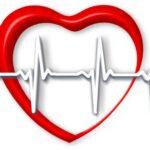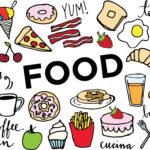List of Health & Nutrition Discussion Questions
Idioms & Sayings
How do these apply to your life? Which ‘ring true’? Which ones don’t?
In good shape: If you’re in good shape, you are fit and healthy.
Example: She exercises every day and eats well. She’s in good shape.
A picture of health: If somebody is a picture of health, then theiy’re in great physical condition.
Example: He looked the picture of health after his vacation.
Fighting fit: If you’re fighting fit, you are very healthy and full of energy.
Example: She recovered quickly from her surgery and now she’s fighting fit.
Right as rain: If you’re right as rain, you are perfectly well or healthy.
Example: Don’t worry about me, I’m right as rain.
Full of beans: If you’re full of beans, you are very lively and energetic.
Example: The kids were full of beans this morning. They must have slept well.
Fit as a fiddle: If you’re fit as a fiddle, you are very healthy and strong.
Example: My grandpa is 9 years old, but he is fit as a fiddle.
Fresh as a daisy: If you’re fresh as a daisy, you are very energetic and not tired at all.
Example: She woke up early and felt fresh as a daisy.
A clean bill of health: If you get a clean bill of health, you are told by a doctor that you are healthy or free from disease.
Example: After being anxious for weeks, Cliff was relieved to receive a clean bill of health.
Go under the knife: If you go under the knife, you have an operation or surgery.
Example: She decided to go under the knife to fix her nose.
Green around the gills: If you’re green around the gills, you look pale and sick.
Example: He looked green around the gills after eating too much candy.
Have foot-in-mouth disease: If you have foot-in-mouth disease, you often say things that are embarrassing or inappropriate.
Example: He has foot-in-mouth disease. He always says the wrong thing at the wrong time.
Have one foot in the grave: If you have one foot in the grave, you are very old or very sick and likely to die soon.
Example: He has one foot in the grave. He doesn’t have much time left.
Just what the doctor ordered: If something is just what the doctor ordered, it is exactly what is needed or wanted.
Example: This massage is just what the doctor ordered. I feel so relaxed.
Laughter is the best medicine: This idiom means that being happy and having fun can help you feel better when you are sick or sad. Example: Don’t be so gloomy. Laughter is the best medicine.
You are what you eat: This means that your health is determined by the food you consume.
Example: My friend eats a lot of junk food, and I always tell her, “You are what you eat.”
An apple a day keeps the doctor away: This means that eating a healthy diet can prevent illnesses.
Example: I always eat an apple in the morning because an apple a day keeps the doctor away.
Health is wealth: This means that good health is more important than money or material wealth.
Example: I don’t mind spending money on a gym membership because health is wealth.
You can’t outrun a bad diet: This means that exercise alone won’t compensate for a poor diet.
Example: My friend thinks she can eat whatever she wants because she runs every day, but I keep telling her that you can’t outrun a bad diet.
You are what you drink: This means that your health is also determined by what you drink.
Example: My doctor told me that I need to cut down on sugary drinks because I am what I drink.
Abs are made in the kitchen: This means that a good diet is crucial to achieving a toned physique.
Example: My personal trainer always tells me that abs are made in the kitchen, so I need to eat clean if I want a six-pack.
You can’t pour from an empty cup: This means that you can’t take care of others if you don’t take care of yourself first.
Example: My friend is always doing things for others and neglecting her own health, but I keep reminding her that you can’t pour from an empty cup.
Eat to live, not live to eat: This means that food should be viewed as fuel for the body rather than a source of pleasure or comfort.
Example: My doctor told me that I need to start eating to live, not live to eat if I want to improve my health.
Prevention is better than cure: This means that it’s easier to prevent an illness than to treat it once it occurs.
Example: I always get my flu shot every year because prevention is better than cure.
You can’t buy health: This means that good health cannot be purchased with money.
Example: My wealthy neighbor thinks she can buy good health with expensive supplements, but I keep telling her that you can’t buy health.
Vocabulary
Words related to Health Ailments & Symptoms
Ailment – (n.)a physical or mental illness or disorder.
Example: My grandmother suffers from several ailments, including arthritis and hypertension.
Symptoms – (n.) physical or mental signs that indicate a disease or medical condition.
Example: One of the symptoms of COVID-19 is a persistent cough.
Chronic – (adj.) persisting for a long time or recurring frequently.
Example: Many health problems, such as diabetes and heart disease, are considered chronic conditions.
Acute – (adj.) of sudden onset or severe in nature.
Example: An acute injury, such as a broken bone, requires immediate medical attention.
Diagnosis – (n.) the identification of a medical condition based on its symptoms and diagnostic tests.
Example: After a thorough examination, the doctor was able to make a diagnosis of pneumonia.
Prescription – (n.) a written order from a doctor for medication or treatment.
Example: The pharmacist filled the prescription for the patient’s pain medication.
Immunization – (n.) the process of making a person immune to a particular disease.
Example: Childhood immunizations protect against many serious diseases, such as measles and polio.
Contagious – (adj.) capable of being transmitted from person to person through contact or exposure.
Example: The flu is a highly contagious disease that can spread quickly in crowded areas.
Epidemic – (n.) a widespread outbreak of a disease that affects many people.
Example: The Ebola epidemic in West Africa in 2014 resulted in thousands of deaths.
Pandemic – (n.) an epidemic that has spread across multiple countries or continents.
Example: The COVID-19 pandemic has affected millions of people worldwide.
Infection – (n.) the invasion of the body by harmful microorganisms, such as bacteria or viruses.
Example: The doctor prescribed an antibiotic to treat the patient’s ear infection.
Allergy – (n.) an adverse reaction to a substance that is normally harmless.
Example: Many people have allergies to pollen, dust, or certain foods.
Rehabilitation – (n.) the process of restoring physical or mental health after an injury or illness.
Example: After his stroke, the patient underwent intensive rehabilitation to regain his ability to walk and speak.
Migraine – (n.)a severe headache often accompanied by nausea and sensitivity to light and sound.
Example: My mother suffers from migraines and needs to rest in a quiet, dark room.
Diabetes – (n.)a chronic condition in which the body is unable to produce or use insulin effectively.
Example: My uncle has to monitor his blood sugar levels carefully because he has diabetes.
Hypertension – (n.)high blood pressure.
Example: My doctor recommended that I exercise regularly to help lower my hypertension.
Arthritis – (n.)inflammation and stiffness of the joints.
Example: My grandmother takes medication for her arthritis to manage her pain.
Asthma – (n.)a chronic respiratory condition that causes difficulty breathing.
Example: My nephew carries an inhaler with him at all times in case he has an asthma attack.
Cancer – (n.)a disease caused by the uncontrolled growth and spread of abnormal cells.
Example: The patient was diagnosed with cancer and began chemotherapy treatment.
Heart attack – (n.)a sudden, serious medical condition caused by a blockage of blood flow to the heart.
Example: The man was rushed to the hospital after suffering a heart attack.
Stroke – (n.)a serious medical condition caused by a blockage or rupture of blood vessels in the brain.
Example: The woman had a stroke and was unable to speak or move her right arm.
Rash – (n.)a red, itchy, or inflamed area of the skin.
Example: The baby developed a rash after wearing a new brand of diapers.
Throbbing – (adj.)a strong, pulsating pain.
Example: The throbbing pain in my head wouldn’t go away, even after taking painkillers.
Sharp – (adj.)a sudden, intense pain.
Example: I felt a sharp pain in my lower back when I bent down to pick something up.
Dull – (adj.)a mild, achy pain.
Example: I have been experiencing a dull pain in my stomach for the past few days.
Shooting – (adj.)a sudden, electric shock-like pain.
Example: I felt a shooting pain in my leg when I twisted it while playing basketball.
Sore – (adj.)a tender, achy feeling.
Example: My muscles were sore after my workout at the gym.
Burning – (adj.)a hot, painful sensation.
Example: I felt a burning sensation in my throat when I drank the hot tea.
Numb – (adj.)a lack of feeling or sensation.
Example: My foot went numb after sitting on it for too long.
Stabbing – (adj.)a sharp, piercing pain.
Example: The stabbing pain in my chest made it hard to breathe.
Aching – (adj.)a dull, persistent pain.
Example: My neck has been aching for a few days, and I can’t turn my head.
Radiating – (adj.)a pain that spreads from one area to another.
Example: The pain in my arm was radiating to my shoulder and neck.
Stiff – (adj.)a sensation of limited movement due to soreness or pain.
Example: My knees are stiff after running a marathon yesterday.
Tingly – (adj.)describes a sensation of pins and needles or a tingling feeling in a specific area of the body.
Example: The tingly feeling in my fingers was a result of poor circulation.
Words related to Nutrition
Macronutrient – (n.) a nutrient that is required in large quantities in the diet, such as carbohydrates, proteins, and fats.
Example: Athletes require large amounts of macronutrients to support their energy needs and muscle growth.
Micronutrient – (n.) a nutrient that is required in small quantities in the diet, such as vitamins and minerals.
Example: A balanced diet should include a variety of fruits and vegetables to provide essential micronutrients.
Metabolism – (n.) the chemical processes that occur in the body to maintain life, including the breakdown of food for energy.
Example: Regular exercise can help boost your metabolism and promote weight loss.
Digestion – (n.) the process of breaking down food in the body to release nutrients for absorption.
Example: Proper digestion is essential for the body to receive the nutrients it needs to function properly.
Malabsorption – (n.) a condition in which the body is unable to absorb nutrients from food properly.
Example: Celiac disease is a form of malabsorption that results from an intolerance to gluten.
Fiber – (n.) a type of carbohydrate that is not digested by the body, but instead helps regulate digestion and prevent constipation.
Example: Whole grains, fruits, and vegetables are good sources of fiber in the diet.
Antioxidant – (n.) a substance that helps prevent damage to cells in the body by neutralizing harmful molecules called free radicals.
Example: Berries, nuts, and leafy greens are rich in antioxidants that can help protect against disease.
Probiotic – (n.) a beneficial bacteria that live in the gut and aid in digestion and immune function.
Example: Yogurt and kefir are good sources of probiotics that can help maintain a healthy gut microbiome.
Prebiotic – (n.) a type of fiber that serves as food for probiotics, helping to promote their growth and activity in the gut.
Example: Chicory root and Jerusalem artichoke are good sources of prebiotic fiber.
Glycemic index – (n.) a measure of how quickly a food raises blood sugar levels after consumption.
Example: Foods with a high glycemic index, such as white bread and sugary drinks, can lead to spikes in blood sugar and insulin levels.
Calorie – (n.) a unit of measurement for energy derived from food.
Example: Consuming more calories than the body needs can lead to weight gain over time.
Carbohydrate – (n) A carbohydrate is a type of nutrient that is made of sugar molecules and provides energy for your body.
Example: Bread, rice, pasta and fruits are rich sources of carbohydrates.
Protein – (n) A protein is a type of nutrient that is made of amino acids and helps your body build and repair muscles, organs and other tissues.
Example: Meat, eggs, cheese and beans are high in protein.
Gluten – (n) Gluten is a protein that is found in wheat, barley and rye. It gives bread its elasticity and chewiness. Some people are allergic or intolerant to gluten and need to avoid it.
Example: Bread, pasta, cereal and beer contain gluten, but you can find gluten-free alternatives in most stores.
Metabolic rate – (n.) the rate at which the body burns calories for energy.
Example: Exercise and diet can affect metabolic rate and impact weight loss or gain.
Nutrient density – (n.) the amount of nutrients per calorie in a food.
Example: Leafy greens and other non-starchy vegetables are high in nutrient density and low in calories, making them a great choice for a healthy diet.
Views: 1029





Leave a Reply